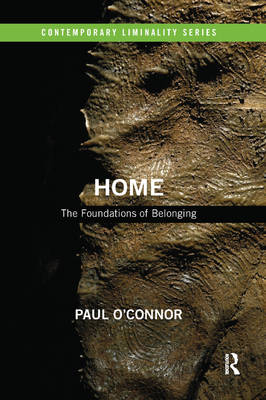
- Afhalen na 1 uur in een winkel met voorraad
- Gratis thuislevering in België vanaf € 30
- Ruim aanbod met 7 miljoen producten
- Afhalen na 1 uur in een winkel met voorraad
- Gratis thuislevering in België vanaf € 30
- Ruim aanbod met 7 miljoen producten
Omschrijving
Questions of home and belonging have never been more topical. Populist politicians in both Europe and America play on anxieties over globalisation by promising to reconstitute the national home, through cutting immigration and 'taking back control'. Increasing numbers of young people are unable to afford home-ownership, a trend with implications for the future shape of families and communities. The dominant conceptualisations of home in the twentieth century - the nation-state and the suburban nuclear household - are in crisis, yet they continue to shape our personal and political aspirations. Home: The Foundations of Belonging puts these issues into context by drawing on a range of disciplines to offer a deep anthropological and historical perspective on home. Beginning with a vision of modernity as characterised by both spiralling liminality and an ongoing quest for belonging, it plumbs the archaic roots of Western civilisation and assembles a wide body of comparative anthropological evidence to illuminate the foundations of a sense of home. Home is theorised as a stable centre around which we organise both everyday routines and perspectives on reality, bringing order to a chaotic world and overcoming liminality. Constituted by a set of ongoing processes which concentrate and embody meaning in intimate relationships, everyday rituals and familiar places, a shared home becomes the foundation for community and society. The Foundations of Belonging thus elevates 'home' to the position of a foundational sociological and anthropological concept at a moment when the crisis of globalisation has opened the way to a revaluation of the local.
Specificaties
Betrokkenen
- Auteur(s):
- Uitgeverij:
Inhoud
- Aantal bladzijden:
- 198
- Taal:
- Engels
- Reeks:
Eigenschappen
- Productcode (EAN):
- 9780367332822
- Verschijningsdatum:
- 15/04/2019
- Uitvoering:
- Paperback
- Formaat:
- Trade paperback (VS)
- Afmetingen:
- 156 mm x 234 mm
- Gewicht:
- 299 g

Alleen bij Standaard Boekhandel
Beoordelingen
We publiceren alleen reviews die voldoen aan de voorwaarden voor reviews. Bekijk onze voorwaarden voor reviews.











